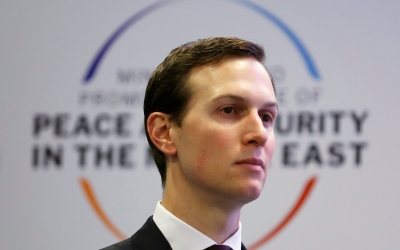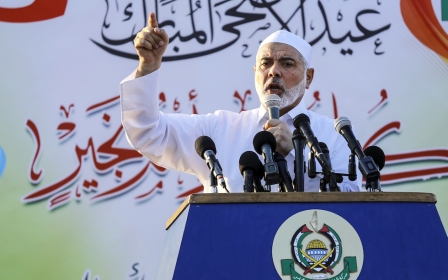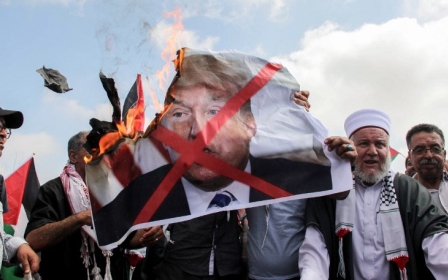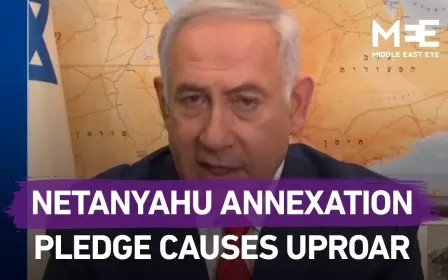Kushner ‘surprised’ by Saudi support for Palestinian rights: Report
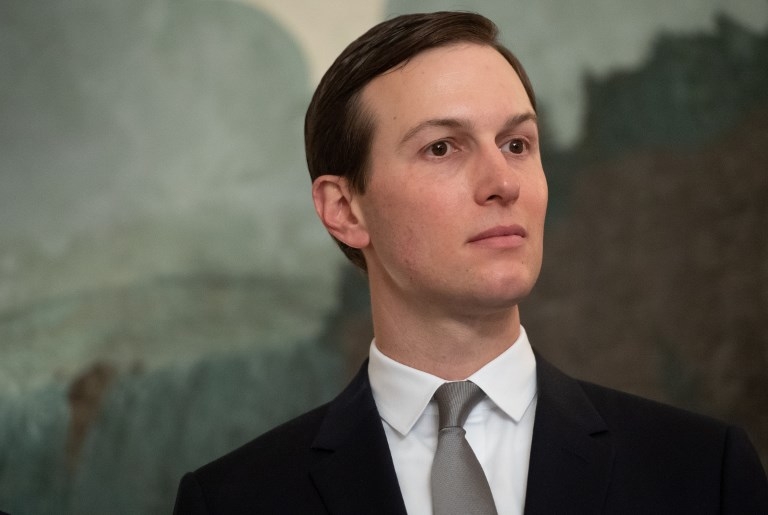
White House senior advisor Jared Kushner was “surprised” when Saudi officials expressed criticism of US President Donald Trump’s so-called “deal of the century” during a meeting in Riyadh, and told him that King Salman emphasised the rights of Palestinians, the Washington Post reported on Sunday.
Kushner was “defensive” during the meeting in February with a group of influential Saudi government officials, intellectuals and newspaper columnists, who had been personally chosen by Crown Prince Mohammed bin Salman, a source familiar with the meeting told the newspaper.
Kushner, Trump’s son-in-law, is considered to have forged a close relationship with the crown prince, known as MBS, who is seen as more supportive than his father of the proposed US peace plan.
“[Kushner] did listen to critical points and questions but wasn’t willing to think about criticism and was defensive,” the source told the Washington Post.
“He seemed to have been surprised when he learned that the majority of people in the room were critical of his plan and told him that King Salman emphasised the rights of the Palestinians.”
New MEE newsletter: Jerusalem Dispatch
Sign up to get the latest insights and analysis on Israel-Palestine, alongside Turkey Unpacked and other MEE newsletters
The US has yet to reveal specific details of the “deal of the century”, but the initiative has been dismissed by Palestinian leaders who have rejected Washington as a mediator because of Trump’s close alliance with Israeli prime minister Benjamin Netanyahu.
Sources familiar with details of the plan also told the Post that it would likely stop short of offering a fully sovereign Palestinian state as the basis for any deal.
In a statement issued after Kushner’s meeting with MBS in Riyadh, the White House said they had discussed “ways to improve the condition of the entire region through economic investment”.
Kushner also said in an interview with Sky Arabia at the time that the plan would focus on four elements: “freedom, respect, opportunity and security”.
The meeting took place during a wider regional tour in which Kushner also met the leaders of Bahrain, the United Arab Emirates and Oman, and held talks with Turkish president Recep Tayyip Erdogan.
'Slap of the century'
Palestinian Authority president Mahmoud Abbas has derided the US plan as “the slap of the century,” and has said he will not commit “treason” by agreeing to it.
According to Palestinian officials, they are likely to be offered provisional borders over fragments of land comprising about half the occupied territories – or just 11 percent of what was recognised as Palestine under the British mandate.
The Palestinian areas would be demilitarised, and Israel would have control over the borders and airspace.
Last June, Palestine’s top negotiator told Middle East Eye that the US plan would "normalise apartheid”.
"If there's any plan, this is being implemented on the ground - moving the US embassy to occupied Jerusalem, withdrawing support for the two-state solution, cutting funds to UNRWA and eventually, trying to normalise Israeli apartheid in Palestine," Saeb Erekat said.
Kushner said in February that the US would reveal details of the plan after Israel’s parliamentary elections, which took place last weekend and have left Israeli Prime Minister set to form a new government.
Prior to the election, Netanyahu pledged to annex settlements in the occupied West Bank if re-elected, and said he had told Trump that he would not remove people or settlements from the Palestinian territory as part of any peace deal.
Middle East Eye delivers independent and unrivalled coverage and analysis of the Middle East, North Africa and beyond. To learn more about republishing this content and the associated fees, please fill out this form. More about MEE can be found here.


